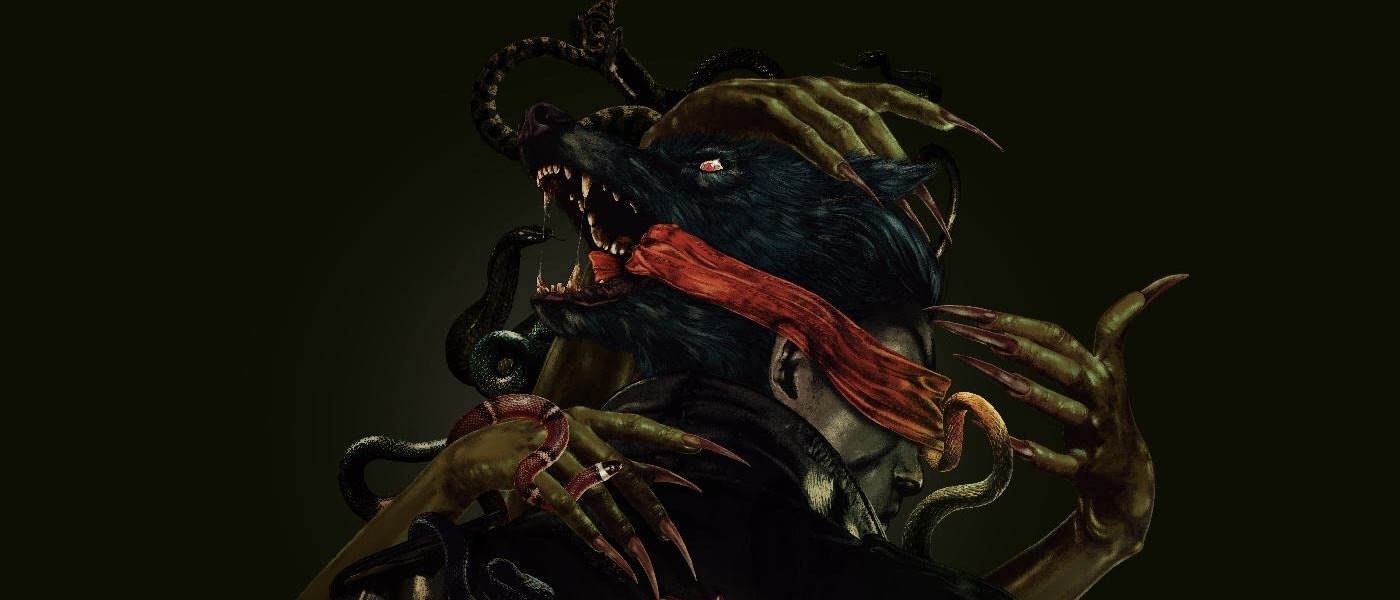You can trust Louder
Outlaw chic has always been central to Queens Of The Stone Age lore. With their roots in the lawless, feral, boundary-free Palm Desert generator party scene in which Kyuss cut their teeth, Josh Homme’s band have always presented themselves with a Last Gang In Town outlaw swagger. Citing mavericks such as Iggy Pop, Can, Johnny Cash, Hank Williams, David Bowie, Lemmy and Tom Waits as influences, from the outset 'The Ginger Elvis' positioned his crew to the left of hard rock orthodoxy, and on anthems such as Feel Good Hit Off The Summer, The Lost Art Of Keeping A Secret and breakthrough hits No One Knows and Go With The Flow the notion of QOTSA operating outside ‘straight’ society was paramount.
After Dave Grohl sat in with the group for a chunk of the Songs For The Deaf cycle, he enthused about the experience to this writer, saying, “If you can say that you were a member of Queens Of The Stone Age that’s like wearing a patch on your chest that says ‘I Am A Badass’ for the rest of your life, because the only people that get to play in Queens Of The Stone Age are badass motherfuckers, and that’s the truth.”
Crucially too though, there was always a sense of honour, honesty and integrity, however twisted, at the unit’s core: having launched his band with a mission statement to make music “heavy enough for the boys and sweet enough for the girls”, Homme cast out his life-long friend Nick Oliver from the fold in 2004 after rumours that the bassist had been physically abusive to his-then girlfriend. For the longest time then, Queens' leader has been portrayed as, to quote NME in June 2017, “a total fucking don.”
And then in December 2017, the 6 foot 5 inch tall musician kicked photographer Chelsea Lauren in the face during his band’s set at the KROQ Acoustic Christmas concert, a shocking display of macho aggression which stunned all who observed it. “I was a dick,” Homme later acknowledged in the apology video which inevitably followed. “I want to be a good man, but I think last night I definitely failed at that… I’m gonna have to figure out some stuff, I think, ’cause rock & roll is a wonderful thing. It’s supposed to save and help people, not mess them up.”
And why is any of this relevant? Well, simply because QOTSA's return with In Times New Roman..., their eighth studio album, and first since 2017's Villains, has been preceded by a careful, subtle and conscious campaign of character and image rehabilitation for the band's leader, as the intervening years have proved challenging in numerous ways for Homme. "Brody Dalle testifies that Josh Homme head-butted her so hard she ‘saw stars’" ran a Guardian website headline on January 25 last year, as a painful and protracted custody battle between the The Distillers' driving force and her former husband played out in graphic, often horrifying, detail in a Los Angeles courtroom. As a result, in a surely unprecedented move, pre-release review streams of In Times New Roman... have been accompanied by a legal statement from Homme confirming that the Los Angeles Family Court awarded him sole legal custody of all three of the former couple's children and noting that Homme "will remain the sole legal guardian of all minor children until a custody hearing in the fall of 2023."
“Out of respect and concern for his minor children and their well-being, Joshua Homme has previously refrained from making public statements about his family to the media,” the statement begins. “In light of the continued falsehoods, the repeated invasions of the children's privacy and the resulting emotional harm, it is time that the truth be told. Our hope is that this will end the enquiries and speculation and provide the family the privacy and consideration they deserve.“
Ahead of the album too, a sensitively-handled cover story in US metal magazine Revolver revealed that Homme is healing following a cancer diagnosis, while a hilariously soft-soaping Apple Music interview with his good friend Zane Lowe, entirely devoid of controversy, gifted Homme an hour-long platform to talk earnestly about his personal growth and Zen-like acceptance of pain, hurt and loss.
With knotty ground razed, cleared and prepped then, we can finally receive the "sonic brutality" that is In Times New Roman... an album which apparently finds Homme and co. “walking deeper into the darkness”, as he recently told NME.com. In practise this means the sort of creaky portmanteau puns that Therapy? were using from 1992 to 1994 - Obscenery, Carnavoyeur - a return to the sort of pared-back, high-impact riffs employed to winning effect on QOTSA's 1998 debut album, then jettisoned circa 2007's Era Vulgaris, and lyrics at times brutal in their directness.
It doesn't take much analysis to determine the target of the singer's ire on Paper Machete when he sings “You speak lioness & damsel in distress so fluently” and spits “I don’t care what you say anymore / Doesn’t matter anyway / Joan of arc, victim, perpetrator” while the album's lead single Emotion Sickness touches upon grief and loss (Homme has seen friends including Mark Lanegan, Anthony Bourdain, Taylor Hawkins and actor Rio Hackford pass in recent years) with the cold as ice acknowledgement “People come & go on the breeze“.
If all this truth is too much to bear, one can always, of course, just focus on the music. Paper Machete has the album's most pile-driving riff, Time & Place skirts closest to the nimble death disco boogie coaxed out by Mark Ronson on Villains, while the dense, intense Carnavoyeur harks back to the woozy, dream fever grinds found on 2013's ...Like Clockwork.
But not everything punches its weight. What The Peephole Say is as weak and throwaway as its title - it's key lyric “I don’t care what the peephole say“ rendered dishonest by the slick PR campaign preceding its release - Sicily is all arch melodrama and icky masochism (“I live between your legs / You’re all peaches & cream“) while nine minute closer Straight Jacket Fitting - sigh - is an ode to embracing life with all its dirty, messy realities with wildly overwrought word play (“To seize all your demons, Carpe demon“) and mediocre riffs which buckle long before it limps wearily to its conclusion.
The latest news, features and interviews direct to your inbox, from the global home of alternative music.
In Times New Roman... is a clearly an album which Josh Homme needed to make. Whether anyone else genuinely needs to listen, though, is another matter entirely.

A music writer since 1993, formerly Editor of Kerrang! and Planet Rock magazine (RIP), Paul Brannigan is a Contributing Editor to Louder. Having previously written books on Lemmy, Dave Grohl (the Sunday Times best-seller This Is A Call) and Metallica (Birth School Metallica Death, co-authored with Ian Winwood), his Eddie Van Halen biography (Eruption in the UK, Unchained in the US) emerged in 2021. He has written for Rolling Stone, Mojo and Q, hung out with Fugazi at Dischord House, flown on Ozzy Osbourne's private jet, played Angus Young's Gibson SG, and interviewed everyone from Aerosmith and Beastie Boys to Young Gods and ZZ Top. Born in the North of Ireland, Brannigan lives in North London and supports The Arsenal.

